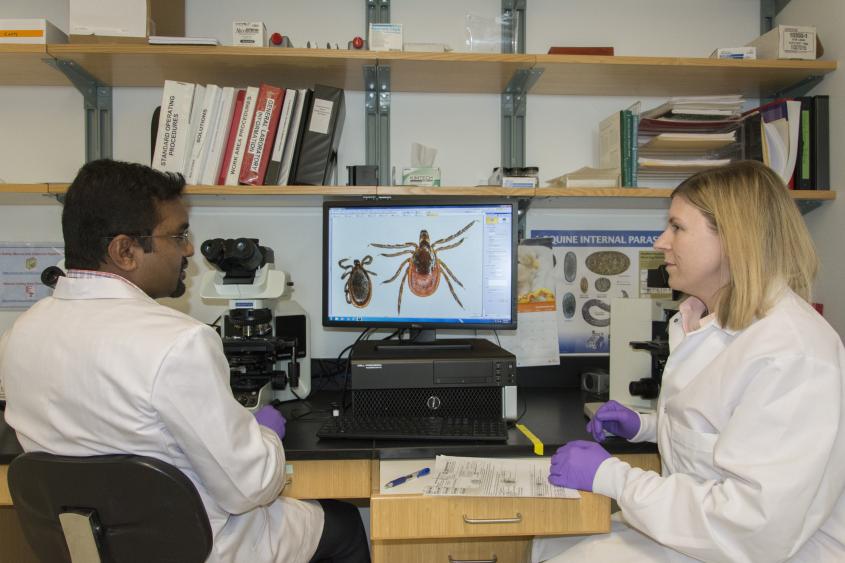AHDC scientists develop new tests to detect tick-borne diseases
Lyme borreliosis is the most common and widely known tick-borne disease, but Borrelia burgdorferi is only one of more than a dozen bacterial, viral and parasitic agents transmitted by ticks to animals and humans.
Laura Goodman, senior research associate at the College of Veterinary Medicine’s New York State Animal Health Diagnostic Center, has developed a new process using nanoscale technology that can detect multiple pathogens at once. She is now adapting this method to test different types of ticks for a large number of disease agents. A long-term goal of her research is to detect and discover newly emerging pathogens.
Blacklegged ticks (formerly known as deer ticks) are the most commonly collected ticks from dogs and humans in the Northeast. “The tests we have traditionally run on this type of tick are for the causative agents of Lyme disease and anaplasmosis,” Goodman said. The latter is caused by bacteria that infect white blood cells and can cause high fevers in people and animals.
“Our newly expanded panel includes assays for the causative agents of Babesiosis, Borrelia miyamotoi disease and Powassan virus disease. All of these agents have been detected in blacklegged ticks from New York state,” she said.
The Cornell AHDC Tick Evaluation Program accepts submissions from the public. It offers Goodman’s tests as well as identification of tick species overseen by board-certified veterinary parasitologist Mani Lejeune.
While it’s good to have better tests for tick-borne diseases, it’s best to prevent tick bites in the first place. Lejeune says that means year-round vigilance. Conduct regular tick checks on your family and pets in all seasons (including winter). If you own horses or other livestock, check them for ticks, as well.
When you find a tick, resist the temptation to hit Google Images. “Because there are so many different species of ticks, and such subtle differences in appearance, you really can’t rely on pictures on the web to identify them,” Lejeune said. “Not all ticks transmit all diseases,” Goodman added. “We need to know exactly what species it is so we can determine what tests are appropriate.”
For more information about tick testing, consult the AHDC website.
This story also appeared on the Cornell Chronicle website.





